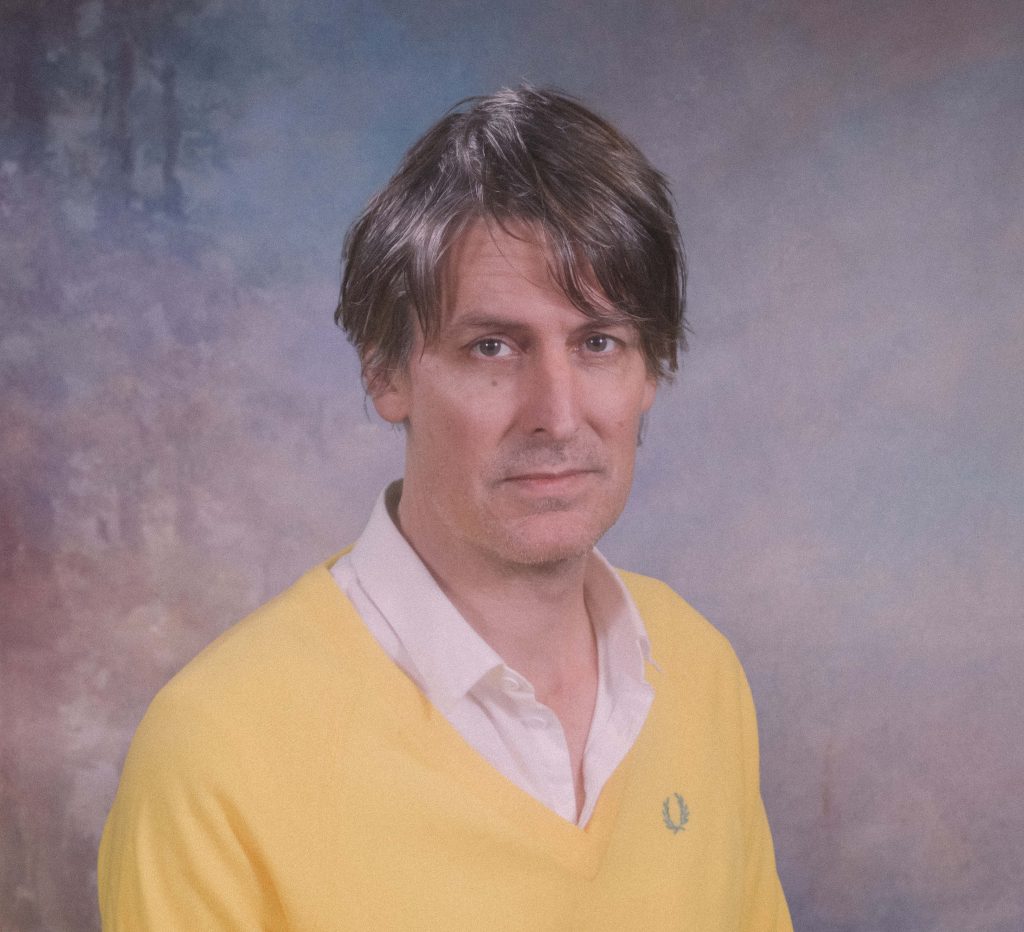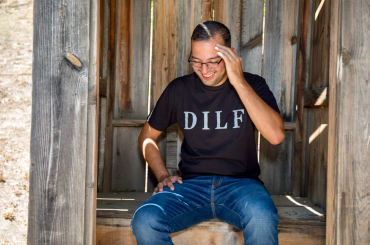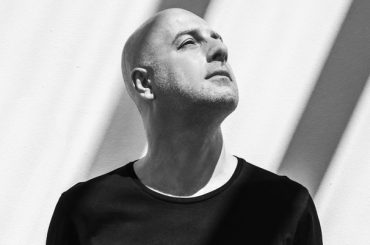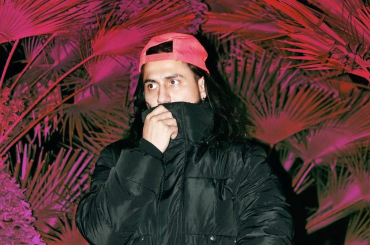For the entire 1990s, Stephen Malkmus was the lead singer/main songwriter for Pavement, probably the decade’s most critically lauded indie-rock band. But after five albums of lo-fi goodness, including 1992’s classic Slanted and Enchanted, Pavement went “on hiatus” in 1999 and Malkmus eventually began to record and tour with a new band, The Jicks.
Now he’s back with Groove Denied (Matador), a solo project that might alienate the fussier elements of his fanbase. The 10-track album melds his shaggy, trademark melodies with taut beats and trippy electronic soundscapes that were certainly inspired by the DJ scene he encountered while living in Berlin. Recording with Ableton Live and diving into its loops-and-FX aesthetic, Malkmus strikes a precarious balance between the more formal rock world and the blips and bleeps of electronica.
While you’ll certainly find bewildering and off-kilter voyages like “Belziger Faceplant,” “A Bit Wilder,” and “Forget Your Place” on Groove Denied, other numbers like “Come Get Me” and “Love the Door” deliver pure melodic (but effect-filled) Malkmus. DJ Times recently caught up with the Portland-based Malkmus to discuss beats, Berlin and Groove Denied.

Credit: Robbie Augspurger
DJ Times: When you lived in Berlin, how did the dance-club environment strike you?
Stephen Malkmus: I was there 2011 to 2013… Well, you can just pick what you wanna see. It’s just like rock-n-roll. If you’re looking for a night out, you just gotta look at who’s playing and when.
DJ Times: What did you think of the DJ culture there?
Stephen Malkmus: For me, as a total neophyte, I would’ve assumed that DJs can work every week – like, they’re just supplying beats for you to dance and to party to. And there are places like that, as you know, that are lowest-common-denominator clubs. But if you’re a DJ, you’ve gotta plan your nights. You’re going to maybe only play every three months, just like a band, because it’s a very competitive market. Or if you’re a local DJ, you have to bring your friends and you have to publicize it yourself. It’s very millennial that way – you have to do all the labor.
DJ Times: Is it odd at all for a live musician to embrace DJ culture?
Stephen Malkmus: There’s a level of scorn, of course, that can be heaved on just playing backing tapes and always doing your same set. That’s easy to do, but I also know that with everyone I meet in the music business or sports – content providers for entertainment – you have to work your way up. There are always the chancers.
DJ Times: What electronic artists are you into?
Stephen Malkmus: I do like Aphex Twin and Squarepusher, of course. The Warp [Records] world was definitely happening. But this record is a little more into a realm of primitive ’80s, experimenting with electronics. What would be my realm is pre-techno Cabaret Voltaire, artsy people.
DJ Times: What are you listening to now?
Stephen Malkmus: I was listening a bit to some techno on my laptop – I was asked to develop a playlist. This kick drum is driving me crazy, but it never drives me crazy in the club – it’s a ballast and it sounds great on a sound system. It keeps you awake. It’s not for 7 p.m. when you’re making dinner, but it doesn’t have to be.
DJ Times: Any Berlin dance-club venues you can recommend?
Stephen Malkmus: Salon Zur Wilden Renate is a classic big Berlin club. You’ve got four rooms, so it’s four vibes competing within one place. There’s a bar area that’s semi-conversational and DJ music, which is housey. Then there’s two major rooms with competing sound systems playing really loud music. So, you just wander into a room and catch a vibe or not. You can also go outside to a patio area.
DJ Times: What else?
Stephen Malkmus: There’s Arkaoda, which just opened in January. It’s in Neukölln and it has more diverse programming, not 100-percent techno. If you’re a music tourist and maybe you’ve already been to Berghain or some of the other venues and you wanna go to a place that’s new and cool, there’s Arkaoda. In Friedrichshain, there’s ://about blank. That club’s classic, Berlin-scene techno, and it has a really cool outdoor area in the summer – it’s forest-y. If you’re tripping, you really feel like you’re in a forest. There’s just something wacky about the place, which I like.
DJ Times: How did Berlin’s electronic-music culture inform this record?
Stephen Malkmus: It’s hard to say. There are only a couple of tracks on there that, in the end, that I felt were valid [in that way]. When I’m making an album, I’m trying to make 30 minutes of convincing music, in any way, shape or form. Besides interacting with different kinds of recording things – like Ableton Live and drum machines – it’s basically kind of dismantling some of the things I have in my mind about how a record should sound.
DJ Times: How so?
Stephen Malkmus: It’s like, even when I was doing “rock music” on this record, does it need to sound like four or five guys in a room playing live? Even the songs that I do that are in a ’60s rock idiom, I’m using simulated drums.
DJ Times: Your melodies are still there…
Stephen Malkmus: Yeah, yeah, they’re still songs. I don’t have the skills yet to pull it off. I don’t live the electronic-music lifestyle 24/7. So, everything’s going to be a noise-maker for me. I’m not converted yet – I haven’t thrown away my guitars. It’s just being informed by the idea of the individual making the party, for one thing, and then recording by yourself with your technology.
DJ Times: Right, it’s VST-World.
Stephen Malkmus: Yeah, so I was in that world and I started thinking that way, just a little bit different. I could imagine myself performing in an artsier venue, just a different context than what you’re gonna go for if you go to a rock show. I mean, I went to rock shows in Berlin, too – they were good shows. But when you’re walking around there, most of the Europeans I met there just aren’t informed as much anymore by the blues or rock-n-roll, like we are. And why should they be? [laughs]








